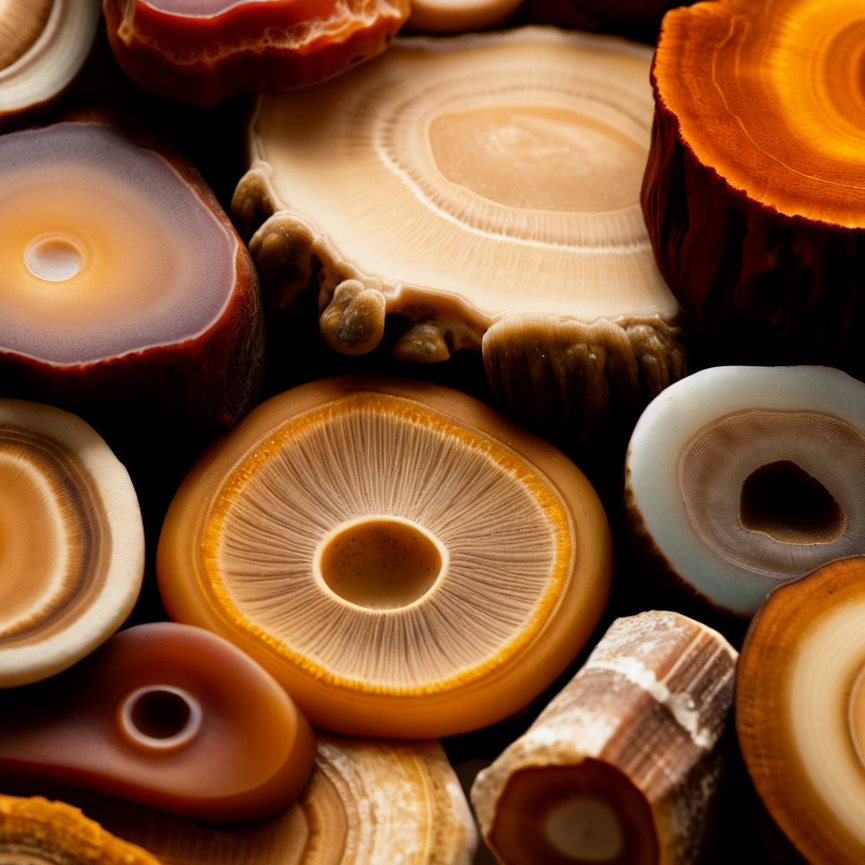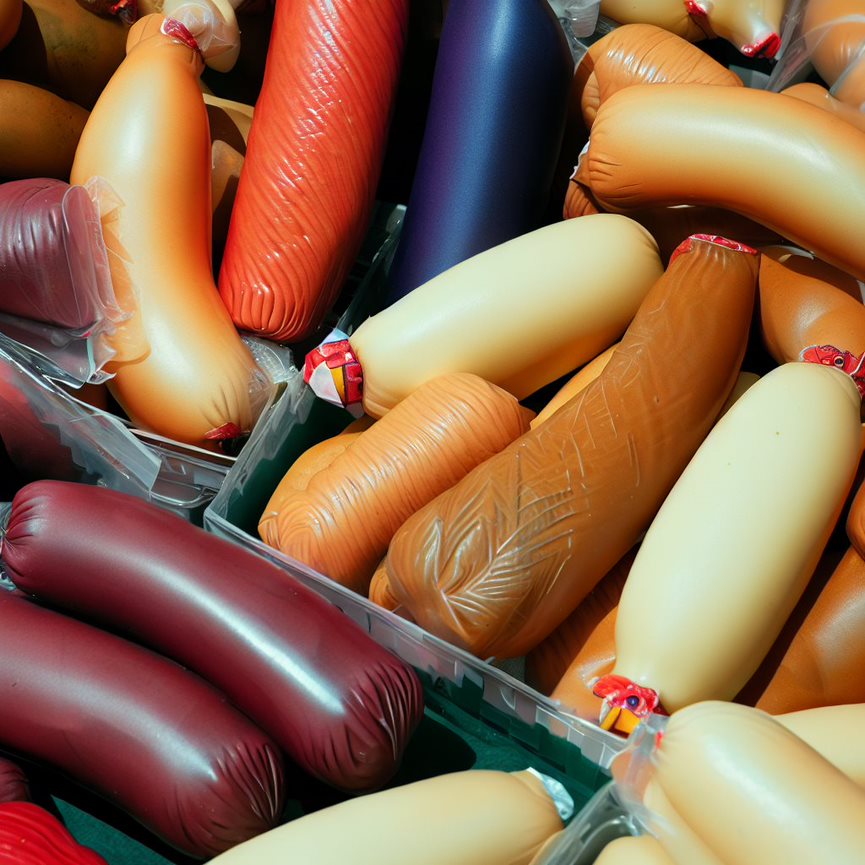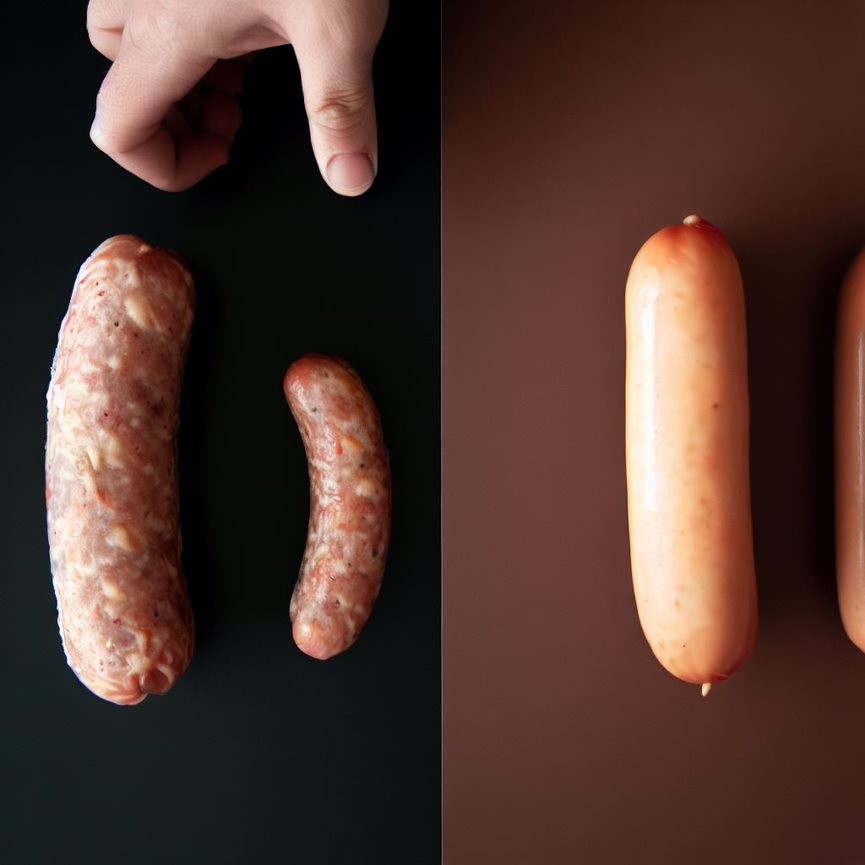Natural vs. Artificial Casings: Why Tradition Often Prevails
The art of sausage-making, whether it’s merguez, dry sausages, or chorizo, often comes down to one crucial choice: the casing. Do natural casings always have an advantage over artificial ones? With our expertise at Cebonat, discover why so many connoisseurs trust natural casings.
The Role of Casings in Sausage Making
Casings play a crucial role in sausage making. More than just a container, casings influence texture, flavor, and even shelf life. When it comes to these qualities, natural casings often stand out.
The Origins of Casings
Natural casings, a heritage from our ancestors, come from animal intestines, such as pork, sheep, and cattle. After meticulous cleaning, they are preserved in salt or brine. They are at the heart of many culinary traditions around the world. In contrast, artificial casings, while practical, are a modern solution that doesn’t always capture the essence of tradition.
The Choice of Casings: A Preference for Tradition
Many butchers, loyal to tradition, turn to natural casings. Praised not only for their authentic flavor but also for allowing sausages to “breathe,” they’re especially preferred for sausages like dry sausages. Although artificial casings have their place, they’re often reserved for mass production or specific needs.
Each Casing Has Its Place
At Cebonat, we value quality. For an authentic experience, natural casings often hold the advantage. Your choice will reflect your needs and preferences.
Natural Casings: The Choice of Tradition

Natural casings are favored by many butchers for a reason: they offer an unmatched experience. Flavor, texture, crispness during cooking—all these make natural casings the ideal choice for those seeking quality.
Natural casings come from animal intestines, such as pork (pork casings), sheep (sheep casings), and cattle (beef casings). These casings are cleaned, treated, often with salt and/or brine, and then prepared for sausage making.
Their primary advantage is their authentic flavor and texture. Indeed, during cooking, they provide an incomparable taste and a crispy texture to sausages. Charcuterie enthusiasts often prefer them for these reasons.
The Traditional Preparation of Natural Casings
The preparation of natural casings is an ancient art, passed down through generations. After animal slaughter, intestines are carefully removed, scraped, washed, and repeatedly calibrated to remove any residue. After measurement (packed or bundled), they are then soaked in a saline solution to preserve and soften them, or drained and preserved in dry salt.
Environmental Respect
Using natural casings is also an environmentally respectful approach. By utilizing all parts of the animal, waste is minimized, contributing to a more sustainable and eco-friendly practice.
Variety and Flexibility in Production
Natural casings offer a wide range of sizes and diameters, allowing butchers to produce different types of sausages, from fine chipolatas to larger dry sausages. Furthermore, their natural elasticity provides better hold during stuffing, ensuring well-formed sausages.
Cultural and Regional Considerations
In many cultures worldwide, the use of natural casings is not only a tradition but also a sign of quality and authenticity. In some regions, festivities are even organized around sausage making, where choosing natural casings is crucial for preserving the authenticity of traditional recipes.
Tips for Handling Natural Casings
If you decide to use natural casings for your sausages, it’s essential to handle them carefully. Store them in a cool place and rinse with cold water before use. When making sausages, take the time to moisten them with warm water to facilitate stuffing and prevent tearing.
Artificial Casings: A Modern Alternative

Artificial casings, while practical, are often a second choice for those seeking authenticity. However, they offer some advantages such as uniformity and ease of use.
Unlike natural casings, artificial casings are made from synthetic or processed materials. Several types exist: collagen casings, cellulose casings, polyamide casings, and vegetable casings. They’re often chosen for ease of use and uniformity.
While these casings don’t impart the characteristic taste of natural casings, they offer excellent hold during cooking and are ideal for those looking for sausages with uniform diameters, like one-meter sausages.
Types of Artificial Casings and Their Specificities
As mentioned, several types of artificial casings exist. Collagen casings (edible) are derived from animal proteins and are particularly appreciated for their strength and elasticity. They’re also valued for their translucent appearance, which gives sausages an attractive look.
Cellulose casings (inedible), on the other hand, are made from processed plant fibers. They’re often used for sausages that require casings to be easily removed after cooking, like some types of Frankfurt sausages.
Polyamide casings (inedible), a type of plastic material, are mainly used in the production of cooked sausages.
Finally, vegetable casings (edible) are made from plant-based materials. These casings are an ideal alternative for manufacturers who want to offer 100% vegetarian or vegan products.
Production Advantages
One of the main advantages of artificial casings is the consistency they offer in production. They enable fast and efficient production, ideal for industrial-scale manufacturing. Additionally, they present fewer breakage risks, ensuring minimal loss during the manufacturing process.
Economic Aspects
On an economic level, artificial casings can often be less expensive than their natural counterparts, especially in large quantities. This allows manufacturers to offer sausages at more competitive prices while maintaining certain quality standards.
Tips for Using Artificial Casings
When using artificial casings, it’s essential to follow the manufacturer’s instructions to ensure proper handling. For instance, some casings may require prior soaking, while others can be used directly. Additionally, depending on the casing type, it may be necessary to adjust cooking time and temperature for optimal results.
The Preference for Natural

While the choice between natural and artificial casings depends on your needs, natural casings often stand out for true sausage lovers. For an authentic, flavor-rich experience, natural is frequently the preferred option.
Cebonat offers a wide range of casings and spices, including spices for merguez, chipolatas, dry sausages, and chorizo to ensure the success of all your preparations. Don’t forget to check out our selection of homemade merguez spices for unparalleled flavor!
Whether you choose to buy sausage casings in supermarkets, from specialized retailers, or online, make sure to select quality products to achieve the best sausages possible.




